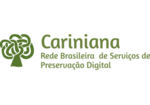Kuhn's epistemology through the documentary “Universe: the cosmology questâ€: questions for Science teaching
DOI:
https://doi.org/10.4025/rvc.v3i2.66205Keywords:
Big Bang Theory, Cosmology, ConstructivismAbstract
In recent decades, researchers have been pointing to a crisis in science teaching, raising questions about teachers' performance in teaching and the results achieved in the classroom and in a social context. The ahistorical and non-social aspect that science assumes before social groups and that are very present in the teaching systems and teaching models most commonly adopted by teachers today alludes to the strong influences of a neo-impirical thinking. Therefore, this study is presented by the need for subsidies to rethink the teaching of Cosmology, detaching science as a finished product that escapes the representational aspects of a historical reality. Thus, this research aims to analyze the documentary "Universe: The Cosmology Quest" through the Epistemology of Tomas Kuhn thinking about science teaching. To answer the objective, the research has a qualitative nature, with a documentary analysis approach, where the data are analyzed through the Epistemology of Science of Tomas Samuel Kuhn, being, therefore, of a deductive character. Therefore, it can be seen that the teaching that seeks to correct such aspects needs an ontological and especially epistemological re- signification, a field in which the understanding of science as a social construct and as a representation of reality operates. This falls upon an emancipatory education that transforms the students, that provides them with subsidies to understand and modify the status quo. To rethink the teaching process is to rethink and redo education, so that not only learning is affected, but the entire social structure.
Downloads
References
ARP, H. et al. The redshift controversy, W. A. Benjamin Publishers, Massachussets, 1973. ARP, H. La Contessa Sulle Distanze Cosmiche e le Quasar, Jaca Book, Milano, 1989.
CARVALHO, A. M. P. de. Fundamentos Teóricos e Metodológicos do Ensino por Investigação. Revista Brasileira de Pesquisa em Educação em Ciências, Belo Horizonte, v. 18, n. 3, p. 765–794, 2018. Disponível em:
https://periodicos.ufmg.br/index.php/rbpec/article/view/4852. Acesso em: 5 ago. 2022.
DESCARTES, R. Discurso do Método, 2003. Disponível em: http://ateus.net/artigos/filosofia/discurso-do-metodo/. Acesso em: 19 maio 2022.
DOURADO, S.; RIBEIRO, E. Metodologia qualitativa e quantitativa. In: MAGALHíES JÚNIOR, C. A. O.; BATISTA, M. C. Metodologia da pesquisa em educação e ensino de ciências. 1. ed. Maringá: Gráfica e Editora Massoni, 2021.
FEYERABEND, P. Contra o Método. Rio de Janeiro: Livraria Francisco Alves, 1985. FONTANA, F.; PEREIRA, A. C. T. Pesquisa Documental. In: MAGALHíES JÚNIOR, C. A. O.; BATISTA, M. C. Metodologia da pesquisa em educação e ensino de ciências. 1. ed. Maringá: Gráfica e Editora Massoni, 2021.
FOUREZ, G. Crise no ensino de Ciências? Investigações em ensino de ciências, Porto Alegre, v. 8, n. 2, p. 109-123, 2003. Disponível em: https://ienci.if.ufrgs.br/index.php/ienci/article/view/542/337. Acesso em: 19 maio 2022.
FREIRE, P. Pedagogia do oprimido. Rio de Janeiro: Paz e Terra. 2005.
FREIRE, P.; FAUNDEZ, A. Por uma pedagogia da pergunta. Rio de Janeiro: Paz e Terra, 1985.
FREIRE, P. Educação como prática da liberdade. 51. ed. Rio de Janeiro: Paz e Terra. 2021a.
FREIRE, P. Educação e Mudança. 46. ed. Rio de Janeiro: Paz e Terra. 2021b.
HUBBLE, E., A relation between distance and radial velocity among extragalactic nebulae. Proceedings of the National Academy of Science, 15, 168, 1929.
KRIPKA, R.; SCHELLER, M.; BONOTTO, D. L. Pesquisa documental: considerações sobre conceitos e caraterísticas na pesquisa qualitativa. Investigação Qualitativa em Educação, v. 2, Atas CIAIQ 2015, p. 243-247, 2015. Disponível em: https://proceedings.ciaiq.org/index.php/ciaiq2015/article/view/252/248. Acesso em: 27 set. 2022.
KUHN, T. S. A estrutura das revoluções científicas. Tradução: Beatriz Viana Boeira; Nelson Boeira. Debates. São Paulo: Perspectiva, 2018.
NASCIMENTO JÚNIOR, A. F. Fragmentos da construção histórica do pensamento neo- empirista. Ciência & Educação, Bauru, v. 5, n. 1. 1998. Disponível em: https://doi.org/10.1590/S1516-73131998000100005. Acesso em: 27 set. 2022.
NEVES. M. C. D. A questão controversa da cosmologia moderna: Hubble e o infinito - parte 1. Caderno Brasileiro de Ensino de Física, Florianópolis, v. 17, n. 2 p. 189-204, ago. 2000. Disponível em: https://dialnet.unirioja.es/descarga/articulo/5166057.pdf Acesso em: 01 ago. 2022.
PÉREZ, D. G. et al. Para uma imagem não deformada do trabalho científico. Ciência & Educação, Bauru, v. 7, p. 125-153, 2001.
PIAGET, J. Epistemologia Genética. Petrópolis: Vozes, 1970.
POPPER, K. R. A lógica da pesquisa científica. Tradução: Leonidas Hegenberg. Octanny Silveira da Mota. 2. ed. São Paulo: Cultrix, 2013.
POZO, J. I.; CRESPO, M. A. G. A aprendizagem e o ensino de ciências: do conhecimento cotidiano ao conhecimento científico. 5. ed. Porto Alegre: Artmed, 2009. 296 p.
UNIVERSE: the cosmology quest – parte 1. Randall Meyers. Los Angeles: Floating Worlds Films, 2004a. Disponível em: https://youtu.be/jOQFLOukrxM Acesso em: 30 jul. 2022.
UNIVERSE: the cosmology quest – parte 2. Randall Meyers. Los Angeles: Floating Worlds Films, 2004b. Disponível em: https://youtu.be/V4BPxQMUaAM Acesso em 30: jul. 2022.
ZANELLA, L. C. H. Metodologia de pesquisa. 2. ed. Florianópolis: Departamento de Ciências da Administração/UFSC, 2011.













